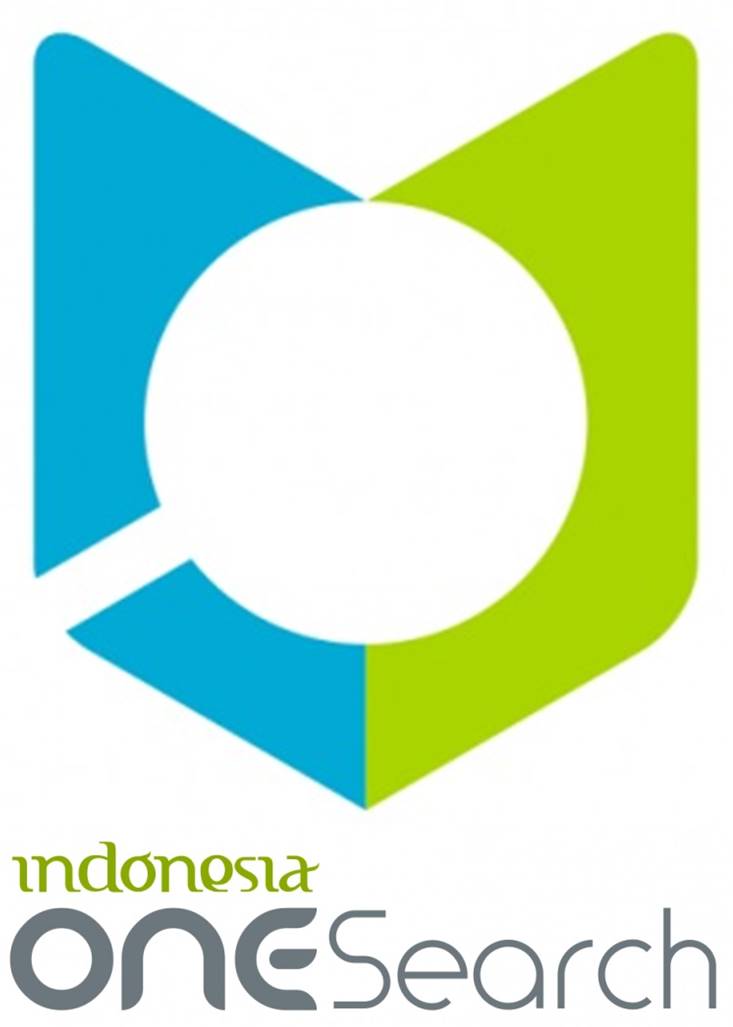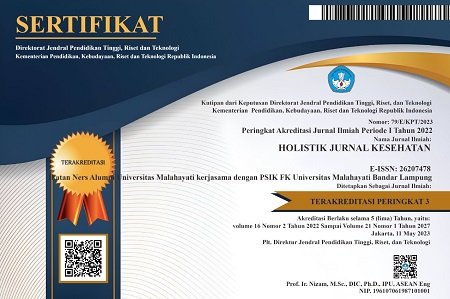Cognitive Behavior Therapy (CBT) pada anak yang mengalami Attention Deficit Hyperactivity Disorder (ADHD): Sebuah tinjauan literatur
Abstract
Background: Attention Deficit-Hyperactivity Disorder (ADHD) is a psychiatric condition that has long been known to affect children's ability to function. Children with ADHD show incompetence not only in attention and focus therapy but also in decision-making and emotional regulation. It is therefore important to diagnose and treat the disorder at a young age so that the symptoms do not continue into adulthood.
Purpose: To determine the benefits of cognitive behavioral therapy in children with attention deficit hyperactivity disorder (ADHD).
Method uses study literature review with a PICO search strategy on three databases, namely Pubmed, Sage Journals, and EBSCO CINAHL.
Results: Obtained articles from European countries, Israel, Franch and Korea according to the research inclusion criteria. From the results of the analysis, it was found that the CBT interventions that can be given to children with ADHD are Cognitive Executive Function (EF) and Cognitive-Functional Intervention.
Conclusion: The results of the study found that CBT can improve executive function which leads to increased independent learning performance in children with ADHD.
Keyword: Cognitive Behavior Therapy (CBT); Children; Hyperactivity Disorder (ADHD)
Pendahuluan: Attention Deficit-Hyperactivity Disorder (ADHD) adalah kondisi kejiwaan yang telah lama diketahui mempengaruhi kemampuan fungsi anak. Anak dengan ADHD menunjukkan ketidak mampuan tidak hanya dalam perhatian dan fokus tetapi juga dalam pengambilan keputusan dan pengaturan emosi. Maka dari itu penting untuk mendiagnosis dan mengobati gangguan pada usia muda sehingga gejalanya tidak berlanjut hingga dewasa.
Tujuan: Untuk mengetahui manfaat cognitive behavioral therapy pada anak dengan attention deficit hyperactivity disorder (ADHD).
Metode: Menggunakan studi literatur review dengan strategi pencarian PICO pada tiga database yaitu Pubmed, Sage Journals, dan EBSCO CINAHL.
Hasil : Didapatkan artikel yang berasal dari negara Eropa, Israel, Prancis dan Korea sesuai dengan kriteria inklusi penelitian. Dari hasil analisis didapatkan bahwa intervensi CBT yang dapat diberikan pada anak dengan ADHD adalah Cognitive Executive Function (EF) dan Cognitive-Functional Intervention.
Simpulan: Ditemukan bahwa CBT dapat meningkatkan fungsi eksekutif yang mengarah pada peningkatan kinerja belajar mandiri pada anak dengan ADHD.
Keywords
References
Agustina, D. (2018). Terapi CBT (Cognitive Behaviour Therapy) Dalam Menangani Gangguan Konsentrasi Pada Anak ADHD (Attention Deficit Hyperactivity Disorder) Di Klinik Anak Yamet Cabang Surakarta. Talenta Psikologi, 58–67.
American Psychological Association. (2017). What is Cognitive Behavioral Therapy https://www.apa.org/ptsd- ideline/patients-and- families/cognitive-behavioral
Chan, Y. S., Jang, J. T., & Ho, C. S. (2022). Effects of physical exercise on children with attention deficit hyperactivity disorder. Biomedical journal, 45(2), 265-270.
Chand, S. P., Kuckel, D. P., & Huecker, M. R. (2021). Cognitive behavior therapy. In StatPearls [Internet]. StatPearls Publishing.
Corbisiero, S., Bitto, H., Newark, P., Abt-Mörstedt, B., Elsässer, M., Buchli-Kammermann, J., & Stieglitz, R. D. (2018). A comparison of cognitive-behavioral therapy and pharmacotherapy vs. pharmacotherapy alone in adults with attention-deficit/hyperactivity disorder (ADHD)—A randomized controlled trial. Frontiers in Psychiatry, 571.
Cristofori, I., Cohen-Zimerman, S., & Grafman, J. (2019). Executive functions. Handbook of clinical neurology, 163, 197-219.
Deupree, S. (2021). CBT for ADHD: How It Works, Examples & Effectiveness https://www.choosingtherapy.com/cbt-for-adhd/
Drechsler, R., Brem, S., Brandeis, D., Grünblatt, E., Berger, G., & Walitza, S. (2020). ADHD: Current concepts and treatments in children and adolescents. Neuropediatrics, 51(05), 315-335.
Geissler, J., Jans, T., Banaschewski, T., Becker, K., Renner, T., Brandeis, D., & Romanos, M. (2018). Individualised short-term therapy for adolescents impaired by attention-deficit/hyperactivity disorder despite previous routine care treatment (ESCAadol)—Study protocol of a randomised controlled trial within the consortium ESCAlife. Trials, 19(1), 1-16.
Hahn-Markowitz, J., Berger, I., Manor, I., & Maeir, A. (2020). Efficacy of cognitive-functional (Cog-Fun) occupational therapy intervention among children with ADHD: An RCT. Journal of attention disorders, 24(5), 655-666.
Kim, M. J., Park, H. Y., Yoo, E. Y., & Kim, J. R. (2020). Effects of a cognitive-functional intervention method on improving executive function and self-directed learning in school-aged children with attention deficit hyperactivity disorder: A single-subject design study. Occupational Therapy International, 2020.
Lopez, P. L., Torrente, F. M., Ciapponi, A., Lischinsky, A. G., Cetkovich‐Bakmas, M., Rojas, J. I., & Manes, F. F. (2018). Cognitive‐behavioural interventions for attention deficit hyperactivity disorder (ADHD) in adults. Cochrane Database of Systematic Reviews, (3).
Magnus, W., Nazir, S., Anilkumar, A. C., & Shaban, K. (2017). Attention deficit hyperactivity disorder (ADHD).
Pauli-Pott, U., Mann, C., & Becker, K. (2021). Do cognitive interventions for preschoolers improve executive functions and reduce ADHD and externalizing symptoms? A meta-analysis of randomized controlled trials. European Child & Adolescent Psychiatry, 30(10), 1503-1521.
Ruby, R. (2018). Does Cognitive Behavioral Therapy (CBT) reduce symptoms of Attention Deficit Hyperactivity Disorder (ADHD) in patients older than 12 years old who are diagnosed with ADHD?.
Sciberras, E., Efron, D., Patel, P., Mulraney, M., Lee, K. J., Mihalopoulos, C., & Hiscock, H. (2019). Does the treatment of anxiety in children with Attention-Deficit/Hyperactivity Disorder (ADHD) using cognitive behavioral therapy improve child and family outcomes? Protocol for a randomized controlled trial. BMC psychiatry, 19(1), 1-9.
Senyametor, F., Arhin, V., Kaedabi-Donkor, R., Dankyi, L. A., & Nkrumah, K. (2021). Effect of Cognitive Behavioural Therapy on Pupils with Attention Deficit Hyperactivity Disorder in Two Selected Primary Schools in Cape Coast Metropolis, Ghana.
Serpa-Andrade, L., Vélez, R. G., & Serpa-Andrade, G. (2021, August). Iteration of Children with Attention Deficit Disorder, Impulsivity and Hyperactivity, Cognitive Behavioral Therapy, and Artificial Intelligence. In International Conference on Human Interaction and Emerging Technologies (pp. 91-99). Springer, Cham.
Sherman, C. A. R. L. (2005). Adult ADHD: Drug choice includes timing issues. Clinical Psychiatry News, 33(6), 22.
Storebø, O. J., Andersen, M. E., Skoog, M., Hansen, S. J., Simonsen, E., Pedersen, N., & Gluud, C. (2019). Social skills training for attention deficit hyperactivity disorder (ADHD) in children aged 5 to 18 years. Cochrane Database of Systematic Reviews, (6).
Vacher, C., Romo, L., Dereure, M., Soler, M., Picot, M. C., & Purper-Ouakil, D. (2022). Efficacy of cognitive behavioral therapy on aggressive behavior in children with attention deficit hyperactivity disorder
DOI: https://doi.org/10.33024/hjk.v16i5.7506
Refbacks
- There are currently no refbacks.
Copyright (c) 2022 Holistik Jurnal Kesehatan

This work is licensed under a Creative Commons Attribution-NonCommercial 4.0 International License.














